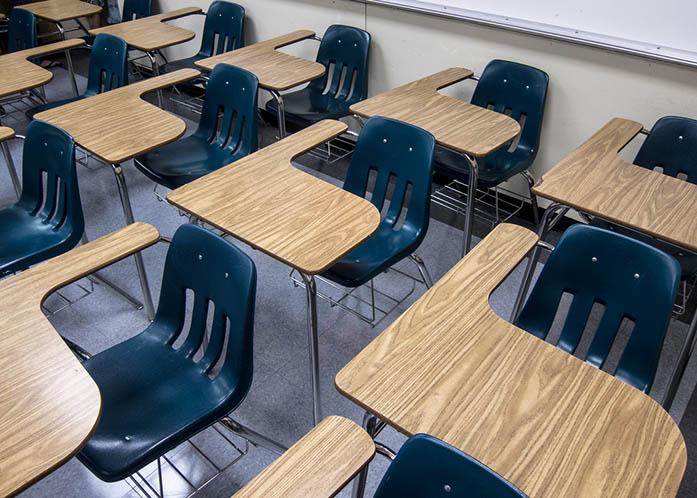By Sarah Stortz
sarah-stortz@uiowa.edu
The Learning Policy Institute released a study in September 2016 reporting a 35 percent decline in enrollment for teacher-preparation programs nationwide, with each individual state declining in the number of teachers.On Jan. 11, the Iowa Department of Education predicted that Iowa should expect a drastic teacher shortage in several parts of the state, according to the Des Moines Register. Iowa has had a 16 percent decline since 2013.
Although the report said the future doesn’t look entirely bleak for every Iowa school, several areas of education have a high demand for teachers.
Larry Bice, the administrative consultant for educator preparation at the state Education Department, said several rural areas of Iowa are severely lacking in terms of finding teachers.
“It’s pretty difficult to get teachers to work in rural areas, because they usually want to move into more urban cities,” Bice said. “Because of that, we’re really lacking teachers in rural Iowa.”
As another possible explanation for the decline, University of Iowa education Associate Professor Renita Schmidt said she believes that education is a field that’s often looked down upon.
“There are many people who think anyone can teach. There are trends that let anyone with a college degree to substitute teach, which I think many teachers are up-fronted by,” Schmidt said. “I’m someone who wants people to see teaching as a scholarly profession. It certainly deserves to be a profession that expects students to excel and know their topic matter.”
While the number of teachers in Iowa remains low, Schmidt said she has high confidence for UI students currently enrolled in the College of Education. This is mostly because of the school’s substantial career placement.
“[Career placement] for our College of Education is over 90 percent. Many of the students who have graduated in January are substituting now, and that will only help them further their network,” Schmidt said. “Others have also gotten a job right away; it has been going very well for our grads.”
One of such students is senior Taylor Scudder, who plans to start substituting after she graduates.
After studying education for so long, she said, she has developed an understanding on why people would feel averse to teaching.
“I know the main reason people typically don’t go into education is because of the money — teachers usually don’t get paid well,” she said. “Sometimes, it can also be pretty hard to put yourself out there as a teacher. We are constantly told that there are hundreds of applicants out there, and it can get difficult to set yourself apart from everyone else.”
Scudder said she sees immediate substituting after graduation as an advantage for schools to find more teaching applicants. “It gives education majors a chance to put our foot in the door,” she said. “When we do apply for jobs in August, we might be more likely to get them because of our experience.”
There are other steps schools can take to help ease the issue.
Schmidt said she believes that a higher interest could occur if teachers received higher salaries, though she also believes this isn’t entirely realistic either.
“We’ve had so much budget cuts across the board, especially in higher education,” she said. “Frankly, I worry about the demise of public education with what’s going on right now.”
Bice said he believes everyone involved in the education world needs to pitch in so that a solution can be found.
“The biggest thing that should be done is working together,” he said. “We need to work together to get student candidates. The school districts can inform us on where they need teachers so we can make sure that we have enough. This actually started in Iowa, with universities working with K-12 programs to look at the best candidates for teaching.”



